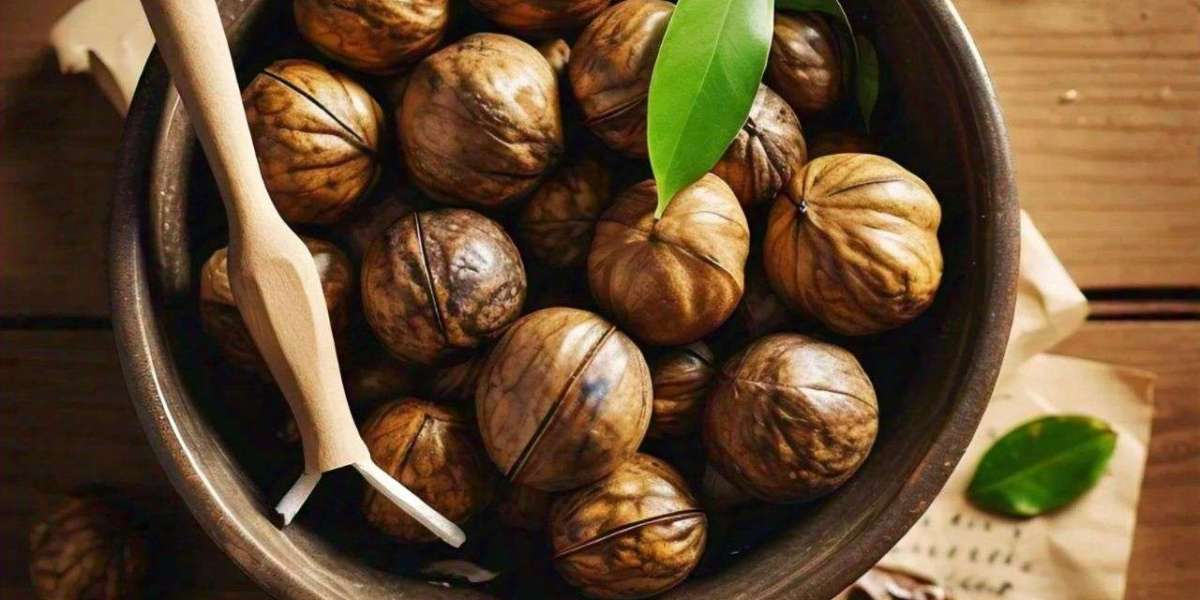Wash nuts, also known as soap nuts, are a natural and eco-friendly alternative to conventional cleaning products. These small, dried fruits of the Sapindus tree have been used for centuries for their cleansing properties. As more people seek sustainable living solutions, wash nuts are gaining popularity. Here’s a detailed guide on how to effectively incorporate wash nuts into your daily routine for a greener lifestyle.
Understanding Soap Nuts
Wash nuts are the fruit of the soapberry tree, which grows in tropical and subtropical regions. These nuts contain saponins, natural surfactants that create a soapy lather when they come into contact with water. This makes them an excellent natural cleaner for laundry, dishes, and general household cleaning.
Benefits of Using Soap Nuts
Switching to wash nuts offers numerous benefits. They are biodegradable, hypoallergenic, and free from synthetic chemicals. This makes them ideal for individuals with sensitive skin or allergies. Additionally, using wash nuts reduces plastic waste and your carbon footprint.
Soap Nuts for Laundry
To use wash nuts for laundry, place 4-6 shells in a cotton bag or pouch. Add the bag to your washing machine along with your clothes. Wash nuts work effectively in both hot and cold water, making them versatile for all types of laundry loads.
How to Prepare Wash Nuts for Laundry
Before using wash nuts, you should clean them. Simply rinse the shells under water to remove any dust or debris. For better results, you can briefly boil the nuts in water to activate the saponins before adding them to your laundry.
Using Wash Nuts in a High-Efficiency Washer
Wash nuts are suitable for high-efficiency (HE) washers. Place the cotton bag with wash nuts in the detergent compartment or directly in the drum. The nuts will release their saponins during the wash cycle, cleaning your clothes effectively without creating excessive suds.
How to Store Soap Nuts
Store wash nuts in a dry, airtight container to keep them fresh and effective. Proper storage prevents mold and ensures that the nuts retain their cleaning properties. A small glass jar or a cloth bag works well for this purpose.
Reusing Soap Nuts
One set of wash nuts can be used for multiple laundry loads. After each wash, remove the nuts from the cotton bag and allow them to dry completely. Typically, wash nuts can be reused 4-5 times before their cleaning efficacy diminishes.
Making a Wash Nut Liquid Cleaner
For a more concentrated cleaner, you can make wash nut liquid. Boil 10-12 shells in 4 cups of water for about 30 minutes. Strain the liquid and store it in a bottle. Use this liquid as a detergent for laundry or a general-purpose cleaner.
Soap Nuts for Dishwashing
Wash nuts can also be used for washing dishes. Place a few shells in a small mesh bag and add it to your dishwashing routine. The saponins will help to cut grease and clean your dishes effectively. You can also use wash nut liquid for this purpose.
Using Soap Nuts for Household Cleaning
Create an all-purpose cleaner by mixing wash nut liquid with water in a spray bottle. This solution can be used to clean surfaces, windows, and floors. It’s a natural and effective way to maintain a clean home without harsh chemicals.
Wash Nuts for Personal Care
Beyond cleaning, wash nuts can be used in personal care routines. They can be added to homemade soaps or used as a natural shampoo. Simply boil the nuts to extract their saponins and use the liquid as a gentle, natural cleanser for your hair and skin.
Environmental Impact of Wash Nuts
Using wash nuts reduces your reliance on chemical-laden products and minimizes plastic waste. Since wash nuts are biodegradable and compostable, they offer a more sustainable alternative to conventional cleaning products.
How to Choose Quality Wash Nuts
When purchasing wash nuts, look for organic and ethically sourced options. High-quality wash nuts will be clean, whole, and free from additives. Check for certifications or labels that indicate their organic status and sustainability.
Common Misconceptions About Wash Nuts
Some believe that wash nuts are ineffective compared to commercial detergents. However, numerous users find them to be as effective, if not more so, in cleaning clothes and dishes. It’s important to adjust your expectations and follow proper usage instructions for the best results.
Tips for Maximizing Effectiveness
For optimal performance, avoid overloading your washing machine. Ensure that wash nuts have enough space to move around and release their saponins. Also, consider using a water softener if you live in an area with hard water to enhance the cleaning power of wash nuts.
Addressing Hard Water Issues
In hard water areas, wash nuts may be less effective. To counteract this, you can add a small amount of baking soda to your laundry or cleaning routine. Baking soda helps to soften the water and improves the performance of wash nuts.
Wash Nuts and Allergies
Wash nuts are generally hypoallergenic, making them a good choice for those with sensitive skin. However, if you have a specific allergy or skin condition, test a small amount of wash nut liquid on your skin before full use to ensure it’s compatible with your needs.
Combining Soap Nuts with Essential Oils
To add a pleasant fragrance to your laundry or cleaning solutions, you can combine wash nuts with essential oils. Add a few drops of your favorite essential oil to the wash nut liquid or directly to your laundry. This customization enhances both the cleaning and aromatic experience.
Troubleshooting Common Issues
If you find that your clothes are not coming out as clean as expected, check the quantity of wash nuts used and ensure they are fresh. Additionally, verify that your washing machine is not overloaded, and consider using a water softener if necessary.
Embracing a Sustainable Lifestyle
Incorporating wash nuts into your daily routine is a step towards a more sustainable lifestyle. By choosing natural, biodegradable products, you contribute to reducing environmental impact and promoting a healthier planet. Embrace this eco-friendly option and enjoy the benefits of cleaner living.








